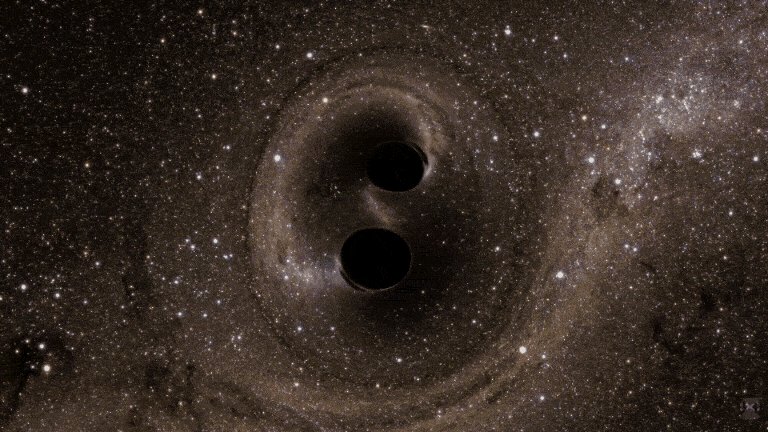Coffee Protects Against Type of Breast Cancer
Get the world’s most fascinating discoveries delivered straight to your inbox.
You are now subscribed
Your newsletter sign-up was successful
Want to add more newsletters?

Delivered Daily
Daily Newsletter
Sign up for the latest discoveries, groundbreaking research and fascinating breakthroughs that impact you and the wider world direct to your inbox.

Once a week
Life's Little Mysteries
Feed your curiosity with an exclusive mystery every week, solved with science and delivered direct to your inbox before it's seen anywhere else.

Once a week
How It Works
Sign up to our free science & technology newsletter for your weekly fix of fascinating articles, quick quizzes, amazing images, and more

Delivered daily
Space.com Newsletter
Breaking space news, the latest updates on rocket launches, skywatching events and more!

Once a month
Watch This Space
Sign up to our monthly entertainment newsletter to keep up with all our coverage of the latest sci-fi and space movies, tv shows, games and books.

Once a week
Night Sky This Week
Discover this week's must-see night sky events, moon phases, and stunning astrophotos. Sign up for our skywatching newsletter and explore the universe with us!
Join the club
Get full access to premium articles, exclusive features and a growing list of member rewards.
Coffee may do more than give a caffeine boost it could also reduce the risk of developing a particular kind of breast cancer, according to a new study.
Women who drink five or more cups of coffee a day are 57 percent less likely to develop estrogen receptor-negative breast cancer than women who drink less than a cup of coffee a day, said study researcher Jingmei Li, of the Karolinska Institute in Sweden.
"Breast cancer is not just one disease; rather, it is made up of several biologically distinct subtypes," Li told MyHealthNewsDaily. "Coffee contains compounds that may differentially affect breast cancer of different estrogen receptor (ER) subtypes."
Estrogen receptor-negative breast cancer is just one kind of breast cancer and is characterized by its lack of estrogen receptors, meaning its growth is not governed by estrogen. Other kinds include HER2-positive breast cancer, where the cancer cells produce too much of a protein called HER2/neu, and the aggressive and rare triple negative breast cancer , which lacks receptors to the hormones and proteins common in other breast cancers.
The study was published yesterday (May 10) in the journal Breast Cancer Research.
Looking at the data
Researchers collected health information from 2,818 women with breast cancer and 3,111 women without breast cancer who were between the ages of 50 and 74 and lived in Sweden.
Get the world’s most fascinating discoveries delivered straight to your inbox.
The women in the study reported their average daily coffee intake during the last year, as well as their education, family history of breast cancer, weight, amount they exercised and menopause status.
Researchers adjusted for factors other than coffee intake, and found that the more coffee women drank, the more protected they were from having estrogen-receptor negative breast cancer.
Coffee's protective benefits
Coffee contains a number of different phytoestrogens, which are plant-based chemicals that act like estrogens in the human body. These phytoestrogens can increase or decrease risk of breast cancer, depending on the kind of breast cancer, Li said.
For example, coffee contains a phyotestrogen called trigonelline, which has been shown in some studies to stimulate growth of estrogen-receptor positive cancer cells. However, coffee has also been shown to contribute to blood levels of a phytoestrogen called enterolactone, which is associated with a decreased risk of estrogen-receptor negative breast cancer.
"These results from previous studies led us to hypothesize that heterogeneity exists between coffee consumption and breast cancer risks for ER-positive and ER-negative breast cancers," Li said.
Because coffee seems to have different effects on different kinds of cancers, people are often confused as to what their risks are with coffee intake, said Dr. Michelle Shayne, an oncologist and assistant professor of medicine at University of Rochester Medical Center in New York, who wasn't involved with the study.
For example, a review of studies published last year in the journal Nutrition and Cancer showed that coffee seemed to have a protective effect on endometrial and colorectal cancers, but didn't confer any benefits for breast, pancreatic, ovarian, kidney or prostate cancers.
All of the conflicting evidence out there means "I wouldn't necessarily tell my patients after reading an article like this to drink more than five cups of coffee a day to lower your risk of a particular type of breast cancer," Shayne told MyHealthNewsDaily. "It's just that if you happen to enjoy coffee consumption, you may possibly have an added benefit of protection against one subtype of breast cancer."
Pass it on: Drinking coffee may help to protect against estrogen receptor-negative breast cancer.
- 6 Foods That Are Good For Your Brain
- 7 Foods You Can Overdose On
- 3 Lifestyle Choices Lower Breast Cancer Risk, Regardless of Family History
Follow MyHealthNewsDaily staff writer Amanda Chan on Twitter @AmandaLChan.
 Live Science Plus
Live Science Plus











